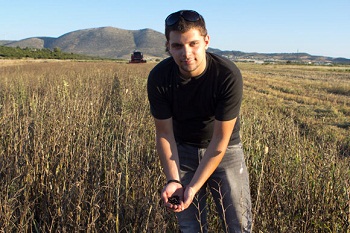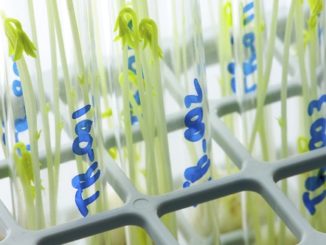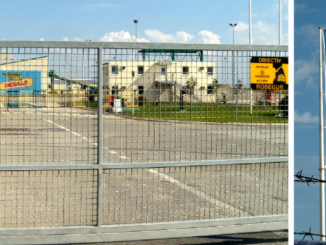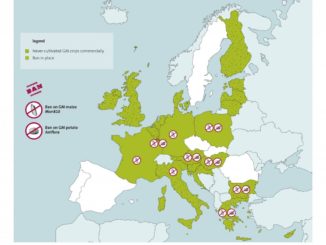Greenpeace Greece has started a campaign demanding that feed companies in Greece stop wasting money on the import of animal feed (which is mostly genetically modified) and start investing in local protein plants such as broad beans, chick-peas, lupins etc. At the same time they are calling on the Ministry of Agriculture to support the cultivation of local protein plants and take the necessary measures that will help farmers, agriculture, the environment and the entire economy of Greece.

This campaign is part of the long-term project against GMOs that Greenpeace has been successfully running in Greece since 1997: Greece is GMO free as far as cultivation is concerned. Thanks to strong public rejection, several Ministers of Agriculture (independent of the political parties to which they belong) have introduced bans on the cultivation of GM maize and GM oil seed rape. In addition, thanks to strong consumer rejection and the EU labelling laws, the market-shelves remain free from GMO food ingredients.
However, GMOs are still imported for animal feed. Every year, more than 400,000 tons of GM soya are imported into Greece destined to feed the animals that produce milk, eggs and meat. In the midst of economic crisis, many feel this is a great waste of money, let alone all the environmental problems linked with the cultivation of soya and the unknown consequences on our health. Facts such as ‘every 3 minutes bulldozers in the Amazon destroy land equivalent in size to a football pitch‘, also continue to raise concern among the public worldwide.
Greenpeace Greece‘s campaign on GMOs has been focusing on animal feed as the Trojan horse of the GMOs entering the country. With several activities, Greenpeace is trying to build public awareness on the issue and put pressure on the big milk companies to stop using GM soya, including a petition asking for local GMO-free animal feed!
It is a message that the politicians need to hear more and more as they debate the future of the Common Agriculture Policy (CAP). The CAP needs to support local farmers who are willing to produce local protein plants to feed us and end the imports of GM soya. This is one of the demands in the Call for Action for the Good Food March: an EU-wide action taking place this summer. You can find more information on the official website here: www.goodfoodmarch.eu






